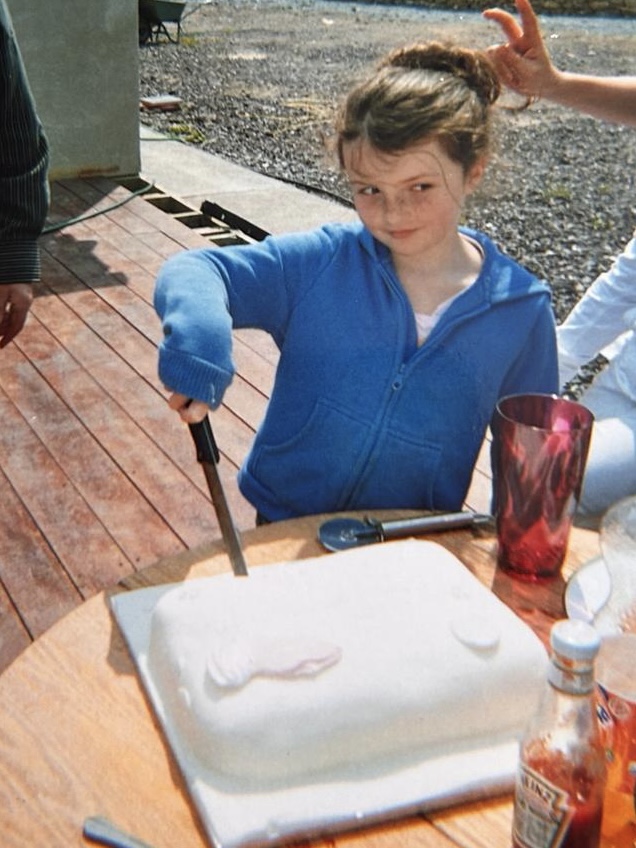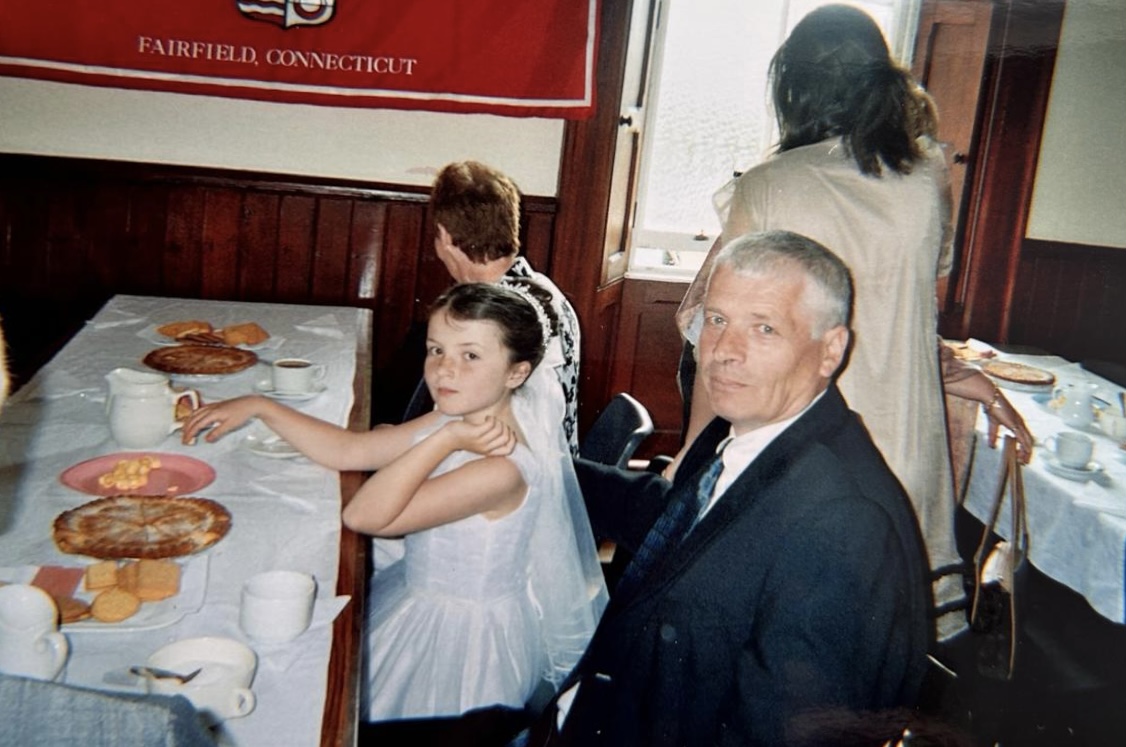When Sarah Kennelly left Boston for Dingle, she waved goodbye to Oreos and Doritos and said hello to abstinence and Catholic guilt. The cailín glic speaks on sweets and self-restraint.
When I was six my parents told me we were moving to Dingle, a rural village in Ireland. Everything I cherished was to be packed up and sent in boxes from our tiny apartment in Boston, Massachusetts. After emigrating to America in their twenties, it was finally time to return to the comfort of their hometown. As my teenage sister cried into a pillow, I couldn’t help but beam with excitement. Ireland promised the freedom of green fields and sleepovers with my first cousins, all 56 of them – yes, we are Irish Catholic. But what I didn’t expect was the cultural shock I would encounter with Irish food and the religious guilt that would ensue.
We arrived in the summer of 2006 and I ran circles around our new garden, mercilessly chasing the sheep who had escaped from next door. But my happy-go-lucky attitude to the move was turned upside down on our first grocery shop. As I barrelled down the aisles, I noticed something suspicious. There were no Oreos. There weren’t even Doritos. The deliciously unhealthy nibbles that made up my diet had been ripped away from me – I didn’t even get to say goodbye. Red-faced and petulant, I demanded my parents take us back to America at once.
Food was never a big deal in my family, we didn’t have a family recipe book or any signature dishes. Although my parents ate traditional Irish meals like stew or pig’s feet, I wouldn’t touch them with a ten-foot pole. Instead, I demanded dinners that came out of a can or had been frozen into the perfect shape of a grey cinder-block. Like most children, I had a deep disdain for vegetables but more particularly for my mother’s cooking. Growing up, she fed me a lie that the pork trotters I was munching on were chicken wings, planting the seed that all home cooking should be distrusted. So, my mom would whip up the quickest thing she could find, usually tinned spaghetti bolognese or pasta with Dolmio sauce.

But if there’s one thing to be sure of, we always had a cupboard packed with snacks. I eventually grew to love the Irish kind – prawn cocktail crisps, Twirls, and fruit salad chews that boasted raspberry and pineapple flavour made from 100 percent sugar. My favourite sweets were Toxic Waste – a hazardously sour candy that left welts on my tongue.
“When February would roll around, the threat of Lent loomed as I filled with dread”
Hailing from rural farming families, both of my parents grew up on a simple diet, and treats were reserved for special occasions. With sugar being such a rarity in their formative years, they both developed an insatiable sweet tooth, something that’s now been passed down to me. As a child in the 1960s, every Sunday after mass, my dad would save up five pence to buy one piece of slap toffee, snapping it in half to save the rest for later. Tasting of sickly sweet caramel, he said it took hours to get to the centre, keeping him occupied on the three mile walk home from church. Now, at the age of 70, he lets out a childish giggle if my mom surprises him with his favourite dessert, strawberry jelly and vanilla ice cream.
Even with our insatiable appetite for sugar, my father, like many parents, would always use sweets as a bargaining tool. If I didn’t behave in class, go to mass, and say my prayers, there wouldn’t be any dessert. And when I was younger, nibbling on a little treat always brought me great comfort, reminding me of my childhood steeped in American junk food. But when February would roll around, the threat of Lent loomed as I filled with dread. And in a strict Catholic school, there wasn’t much room for free will. My friends would enter into fierce competition to see who could give up the most sugar. In the same breath, our teachers never failed to remind us that gluttony is one of the seven deadly sins. So, brimming with fear and against my better instinct, I would pledge to forgo my favourite food group, sweets.
But I was never any good at following orders anyway. I would often break rules that involved any bit of self-restraint, to the dismay of our school nun. She would often call me cailín glic – meaning ‘sly girl’ in Irish – as I whizzed down the hallway, KitKat peeking out of my sleeve.
“If you don’t follow Lent, there’s a risk that you’ll live a life of vice.”
Alison Forrestal
I always found religion difficult to follow, the focus on hellfire and brimstone was never that attractive. At mass, I couldn’t keep still, shifting from side to side, neither leg able to bear the weight of my boredom. And when the priest lifted the incense, its scent wafted over me, a wave of relief that it was over.
Still, my friends and I would feel enormous shame if we broke Lent. Catholic guilt became part and parcel of growing up in Ireland. It was drilled into us that abstention should be practised in every aspect of your life – from food to sex. And as Lent came to an end, the image of the confessional box simmered in the back of your mind. If you had to confess your gluttonous sins, you would be assigned a few extra prayers to say at the bench, hanging your head in remorse.

Curious about my deep-seated shame of sweet treats, I asked Alison Forrestal, professor of religious history at the University of Galway, why Lent is taken so seriously in Ireland.
She says: “Particularly in Irish Catholicism, there’s a strong emphasis on peril and punishment. And by not doing these things, it would be a surefire road to hell. If you don’t follow Lent, there’s a risk that you’ll live a life of vice.
“Even in a secular setting, you’ll hear Irish people talking about giving up sweets for Lent, even though they may not have darkened a church door from one end of the year to the next.”
This is the case for many of my friends and family, who are no longer practising Catholics but enjoy the frills of the ceremonies they grew up with. Besides, Pancake Tuesday is too good of an excuse to eat Nutella for breakfast, lunch, and dinner.
As I grew up and fell out of touch with my religion, I stopped feeling shame over what I ate and embraced my cravings for sweets. Everything should be done in balance, and if I still have my five-a-day, what’s the harm in having a cheeky Snickers with my cup of tea? After all, nothing beats seeing the smile on my dad’s face as I come into the sitting room, digestive biscuits in hand.
